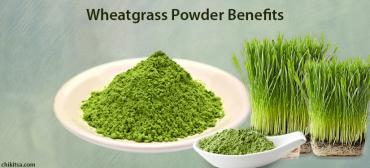Health Benefits of Magnesium

Magnesium is one of the most important minerals required by our body. It plays a crucial role in more than 300 biochemical functions of human body and is important for good cellular health. Nearly 80 percent of people suffer from magnesium deficiency though most of them are not aware of it.
According to a study by BMC Bioinformatics, our body has 3751 sites for magnesium binding. The latest report indicates that the mineral benefits us more than what was previously imagined. Our body uses magnesium to perform different functions. That is why, it is important for us to take foods high in magnesium.
Benefits of Dietary Magnesium
Magnesium performs several important functions in our body. Those functions are as follows:
Building Healthy & Stronger Bones
It is one of the major functions performed by magnesium. Deficiency of magnesium changes the way how human body metabolizes hormones and calcium. Taking magnesium rich foods makes a tremendous improvement on density of bone mineral. It is, therefore, recommended to take adequate amount of magnesium through food to prevent osteoporosis.
Flexibility of Muscles
Magnesium also helps in contraction and relaxation of body muscles. Human body uses the mineral to control nerves and regulate its muscles. Deficiency of dietary magnesium may lead to muscle weakness, fatigue and continued contraction of muscles.
Regulating Blood Pressure
Dietary intake of magnesium-rich foods helps in regulation of blood pressure. Recent studies have found that dietary intake of the mineral helps in improvement of serum lipid profiles and lowers blood pressure.

Carbohydrate Metabolism
Magnesium is believed to have influence over response of insulin in human body. It controls glucose level by playing a role in carbohydrate metabolism. Increased intake of dietary magnesium curbs risk of type 2 diabetes. In 2004, an 18-year long study revealed that higher intake of magnesium successfully reduces the danger of getting afflicted by type 2 diabetes.
Energy Creation & Transfer
Magnesium contributes to release and transfer of energy by working with different enzymes. The mineral performs this role as a co-factor to help in digestion and also absorption of carbohydrates, fats and proteins. Magnesium is a very good protein synthesizer. It boosts up your body to release energy and also transfers the same by acting as a co-factor with enzyme ATP and adenosine triphosphate.
In addition, magnesium also produces antioxidant glutathione and releases neurotransmitter.
Deficiency of Magnesium
Deficiency of magnesium refers to insufficient intake of dietary magnesium and/or problems in magnesium absorption. Deficiency of magnesium can result into several health problems. The problem is usually corrected by increased intake of magnesium through diet, supplements and intravenous supplementation (only in the severe cases).
Magnesium Deficiency Causes Following Problems:
- Chronic fatigue
- Loss of appetite
- Lack of energy
- Poor memory
- Muscular problems like spasms, cramps and fasciculations
- Weakness
- Osteoporosis
- Constipation
- Loss of sleep or insomnia
- Nausea
- Delirium
- Hallucinations
- Tension or migraine headaches
- Anxiety and depression
- Low level of calcium
- Low level of serum potassium
- High level of blood sugar
- Inferior resistance to insulin
- Rapid heartbeat
- Low circulations of parathyroid hormone or PTH
- Sudden changes in personality
Sources of Magnesium
Green leafy vegetables are very rich in magnesium. However, there are other sources of getting the mineral from. Here we have enlisted top ten foods which are great sources of magnesium. By placing them on your regular diet chart, you will be able to cure the problem of deficiency and also maintain balance of the mineral.
Spinach:

It is the most abundant source of spinach. 1 cup of spinach contains 157mg of magnesium.
Pumpkin Seeds:
1/8 cup of pumpkin seeds has 92mg of magnesium.
Yoghurt:
It is almost regular in our diet chart during summer days. It keeps us cool. However, you can also get adequate amount of magnesium by taking yoghurt regularly. You will get 50gm of magnesium from 1 cup of yoghurt.
Almonds:
It is one of the important magnesium food sources. 1 ounce of them produces 80mg of magnesium.
Avocado:
It is also rich in the mineral, yielding 58mg of magnesium from 1 medium-sized avocado.
Figs:

You will get 50mg of magnesium from ½ cup of figs.
Black Beans:
Taking black beans regularly will cure the problem of deficiency to a significant extent. Take ½ cup of them to get 60mg of magnesium.
Bananas:
1 medium sized banana produces 32mg of magnesium.
Dark Chocolate:
1 square of dark chocolate supplies 95mg of magnesium.

There are other foods rich in magnesium and these include coriander, salmon, goat cheese, cashews and artichokes.
Dietary Magnesium deficiency in the body results in health hazards. Many do not notice symptoms of Magnesium deficiency. Consult general physicians in Delhi before it takes a serious turn.








